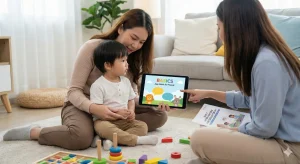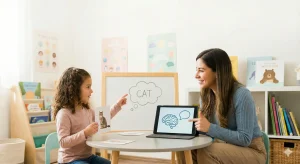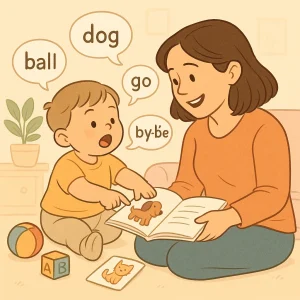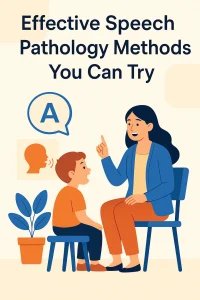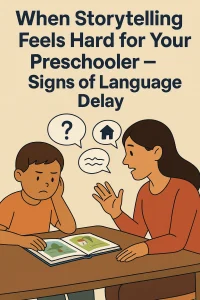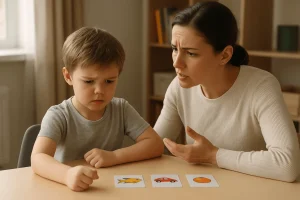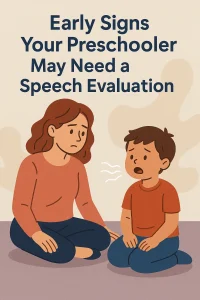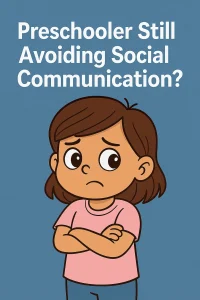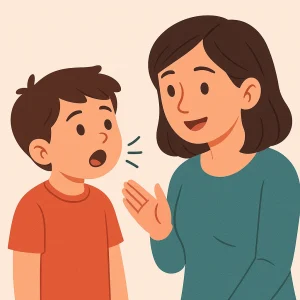Leveraging Multi-Level Games for Progressive Speech Therapy: Enhancing Skills with Fun and Interactive Challenges
By Akash Sinha
Last Updated: September 18, 2024
Speech therapy is a crucial intervention that helps children with speech and language disorders enhance their communication abilities. The goals of speech therapy are diverse, ranging from improving articulation and fluency to enhancing the ability to understand and express language effectively. This therapy is not just about correcting speech patterns but also about building confidence and social skills in children.
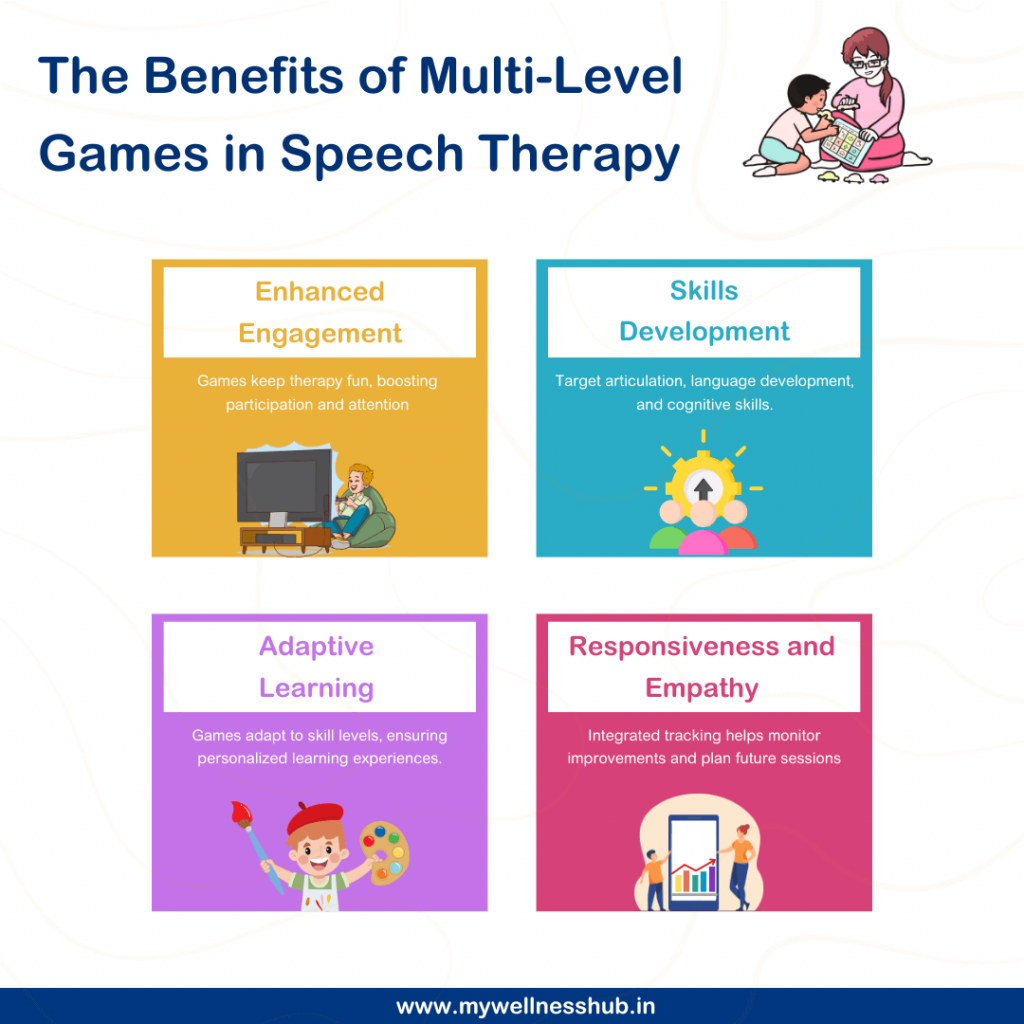
Engagement and interaction play pivotal roles in the success of speech therapy. Children often learn best when they are actively involved and enjoying the process. Engaging therapy sessions captivate their attention, foster motivation, and encourage regular practice—all essential for effective learning.
Enter multi-level games—a dynamic tool designed to make speech therapy more effective and enjoyable. These games incorporate varying levels of difficulty and can be adapted to meet the individual needs of each child. By using multi-level games, therapists can create a personalized and progressive approach that not only aligns with the child’s developmental stage but also keeps them engaged throughout their therapy journey.
At WellnessHub, we understand the power of interactive tools in therapy. Our Tele-BASICS platform integrates multi-level games into speech therapy sessions, ensuring that they are not only educational but also fun and engaging for all participants.
Understanding Multi-Level Games
Multi-level games are specially designed activities that offer different levels of challenge based on the player’s skills. In the context of speech therapy, these games help address various aspects of communication, from basic phonetic sounds to complex conversational skills. The key is their adaptability—they can be modified to cater to different ages, abilities, and therapy goals.
These games are crafted to grow with the child. As a child masters one level, they can move to more challenging tasks, making therapy a continually evolving process. This adaptability makes multi-level games an invaluable resource in speech therapy, ensuring that each session is appropriately challenging and corresponds to the child’s current skills.
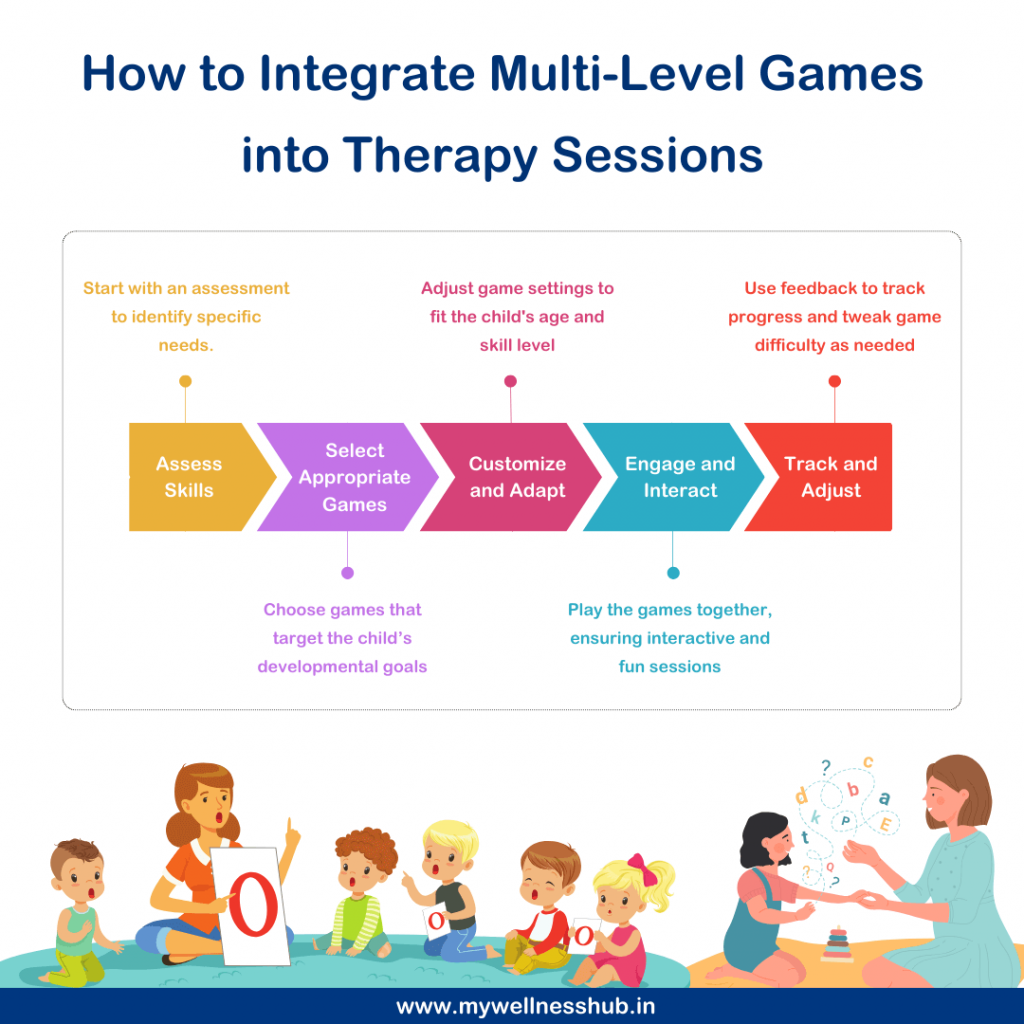
The Role of Multi-Level Games in Speech Therapy
Multi-level games are not just entertaining; they are potent tools tailored to meet various therapeutic needs in speech therapy. These games facilitate language development, enhance articulation, and boost cognitive skills among children, making them essential components of modern therapy practices.
Meeting Different Therapeutic Needs
Each child in speech therapy may have unique needs ranging from building vocabulary to mastering the rules of syntax or improving phonemic awareness. Multi-level games are designed to address these varied needs through adjustable difficulty levels that ensure the child is neither under-challenged nor overwhelmed. This flexibility helps therapists to precisely target and address specific therapeutic goals for each child.
Benefits for Language Development and Articulation
In terms of language development, multi-level games encourage children to engage in tasks that require listening, understanding, and responding—skills crucial for effective communication. For articulation, these games provide repetitive practice in a fun, engaging format that does not feel monotonous or laborious. Children enjoy playing and naturally spend more time practicing speech sounds, which is critical for muscle memory and speech improvement.
Cognitive Skills Enhancement
These games also play a critical role in developing cognitive skills such as memory, problem-solving, and sequencing, which are vital for both language use and overall academic performance. Through interactive gameplay, children learn to follow complex instructions, sequence events, and solve puzzles, all of which contribute to cognitive development.
Real-world Examples
One successful example is a game designed for varying sentence structure practice. Children start with simple sentences and progressively build up to more complex structures, allowing them to practice and internalize grammar rules effectively. Another popular game focuses on vocabulary expansion through a tiered system where children identify, categorize, and use new words in appropriate contexts, thereby enhancing both their receptive and expressive language skills.
Key Features of Effective Multi-Level Therapy Games
Effective multi-level therapy games share several key features that make them especially beneficial in a therapeutic setting. These include adaptability, progress tracking, and age-appropriate design.
Adaptability
The core of any multi-level game’s success in therapy is its ability to adapt to the changing abilities of the child. This means that the games can be easily customized to increase or decrease in difficulty based on the child’s current performance and therapy goals.
Progress Tracking
Another vital feature is the ability to track progress. This not only motivates children by showing them how much they have achieved but also provides therapists and parents with valuable data on the child’s ongoing development and efficacy of the therapy.
Age-Appropriate Design
Games must also be age-appropriate, not just in terms of content but also in themes, graphics, and complexity of challenges. This ensures that the child remains engaged and not frustrated or bored.
Overview of Multi-Level Game Types and Their Benefits in Speech Therapy
| Game Type | Skills Targeted | Description and Benefits |
|---|---|---|
| Phonetic Games | Articulation | Focus on the production of sounds; enhance phonetic accuracy and fluency. |
| Vocabulary Builders | Language Development | Expand vocabulary through categorization and usage in context. |
| Grammar and Syntax | Grammar, Sentence Construction | Improve understanding and use of grammatical rules and sentence structures. |
| Memory Games | Cognitive Skills | Enhance working memory, crucial for following directions and storytelling. |
| Problem Solving Games | Cognitive Development | Develop reasoning skills, necessary for higher-level language use. |
| Social Interaction Games | Social Skills | Promote pragmatic language skills through simulations of social scenarios. |
WellnessHub’s Tele-BASICS Platform
At WellnessHub, our Tele-BASICS platform exemplifies these features. It offers a suite of customizable games that therapists can adapt in real-time during sessions. Our platform includes detailed progress tracking tools that help therapists assess and adjust plans based on empirical data. The games are designed with captivating graphics and challenges suitable for various age groups, ensuring they meet the developmental and therapeutic needs of all children.
Incorporating Multi-Level Games into Therapy Sessions
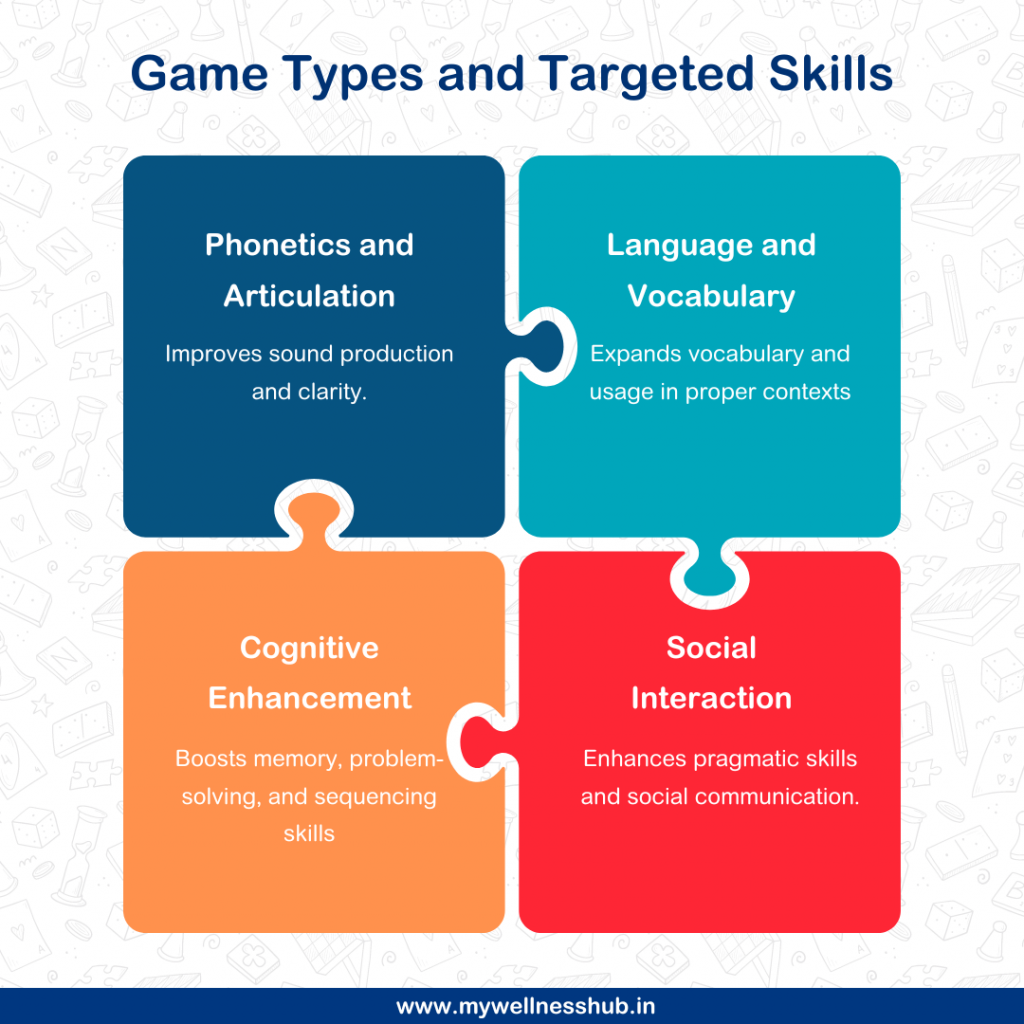
Integrating multi-level games into speech therapy sessions can transform the therapeutic experience for both the therapist and the child. Here’s a step-by-step guide to help therapists and parents understand how to effectively incorporate these games into their sessions.
Step-by-Step Integration Guide
- Assessment: Begin with a thorough assessment of the child’s current speech and language skills to determine the most appropriate games and starting levels.
- Selection: Choose games that specifically target the skills you need to develop. For example, if working on articulation, select games that focus on sound production.
- Customization: Adapt the game settings to suit the child’s age, interest, and therapy goals. This might involve choosing themes they enjoy or levels that match their current abilities.
- Introduction: Introduce the game to the child and explain how it fits into their therapy goals. Make it clear that while the game is fun, it’s also a part of their learning process.
- Integration: Incorporate the games into regular therapy sessions as part of a balanced approach that includes other therapeutic activities and techniques.
- Feedback and Adjustment: Use real-time feedback from the game to monitor the child’s responses and make immediate adjustments to the game’s difficulty.
Customization Tips
- Personalize Content: Use the child’s name, favorite colors, or interests to make the game more relatable.
- Vary Challenges: Rotate through different types of games to keep the therapy fresh and engaging.
- Set Achievable Goals: Ensure that goals are within the child’s reach to keep them motivated and prevent frustration.
Using Feedback and Progress Tracking
- Monitor Progress: Regularly check the progress reports generated by the games to see how well the child is doing.
- Adjust Levels: Based on the child’s progress, adjust the difficulty levels of the games to continually challenge them just enough to keep them engaged and learning.
- Share Achievements: Share progress with the child and their parents, highlighting achievements to boost confidence and reinforce the value of therapy.
Resources and Tools
At WellnessHub, we are committed to providing a comprehensive range of resources and support tools that enhance the use of multi-level games in therapy.
Available Resources
- Extensive Game Library: Our Tele-BASICS platform offers a vast selection of multi-level games designed specifically for speech therapy, covering a wide range of skills from basic phonetics to complex sentence construction.
- Customizable Templates: Therapists can use or modify existing game templates to create a tailored therapy experience that addresses the specific needs of each child.
Support Tools
- Interactive Dashboards: Therapists can track multiple sessions and view progress over time through user-friendly dashboards.
- Resource Sharing: Easily share games and resources with colleagues or parents, fostering a collaborative therapy environment.
- Training and Support: We provide detailed guides and support for therapists to make the most of our multi-level games, ensuring that every child receives the best possible therapeutic experience.
By leveraging the resources and tools available on the WellnessHub platform, therapists and parents can enhance the therapeutic outcomes for children needing speech therapy. Our tools are designed to be easy to use and highly effective, making therapy both fun and productive.
Conclusion
Multi-level games have revolutionized speech therapy by offering tailored, engaging, and progressively challenging experiences that meet the diverse needs of children. These games make therapy sessions more interactive and enjoyable, thereby increasing the likelihood of children participating eagerly and benefiting more effectively from their therapy.
We encourage both therapists and parents to explore the potential of multi-level games to transform speech therapy sessions into more effective and rewarding experiences. By integrating these innovative tools, therapy can become a path not just to better speech, but also to greater confidence and joy in communication.
Experience the future of speech therapy with WellnessHub’s Tele-BASICS platform. Explore our extensive library of multi-level games and resources designed to make therapy sessions as productive as they are delightful. Join us in creating a world where therapy is not just beneficial but also a joyous part of every child’s day.
Visit us at WellnessHub or contact us at care@mywellnesshub.in or +91 888 1299 888 for more information and to start enhancing your therapy sessions today. Let’s make each word a child speaks a step towards greater success and happiness.
About The Author:
Akash Sinha (Co-founder, CTO)
B-Tech IIT Kanpur
Akash Sinha is the tech brain behind WellnessHub. He has dedicated his work to creating tools and web apps for amazing kids who might need a bit of extra support, like those with Autism or speech challenges.
Book your Free Consultation Today
Parent/Caregiver Info:
Client’s Details:
* Error Message
